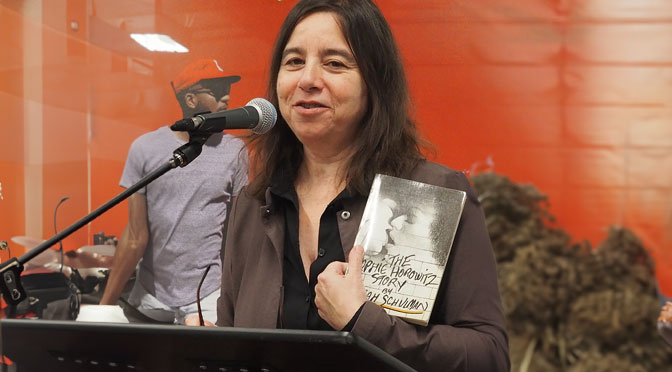Sarah Schulman is a well-known author, playwright, and activist for the LGBTQ+ community. Born in 1958, Schulman grew up in New York City and became a prominent figure in the downtown arts scene, which, at the time, was dominated by a vibrant and openly queer community. Throughout her career, Schulman has written numerous novels, plays, and screenplays that explore queer identities, sex, and desire. In this blog post, we will explore Schulman’s life and work, with a particular focus on her novels, “After Delores” and “People in Trouble,” as well as her views on lesbian representation in the arts and the cultural obsession with family.
Schulman’s novels, “After Delores” and “People in Trouble,” both explore the complexities of love and desire in the context of the queer community in the Lower East Side of New York City. In “After Delores,” the protagonist, Molly, a young lesbian struggling with addiction, falls in love with a charismatic but troubled older woman named Dolores. The novel is a poignant exploration of the intergenerational relationships that often form in queer communities and the ways in which love and desire can complicate issues of power and agency. Similarly, “People in Trouble,” follows the lives of a diverse group of queer characters as they navigate the challenges of living in a city that is simultaneously oppressive and liberating.
One of the things that sets Schulman’s work apart is her frank and unapologetic exploration of sexuality. In both “After Delores” and “People in Trouble,” Schulman writes explicit sex scenes that are both sensual and evocative. These scenes are not gratuitous but serve a clear narrative purpose, underscoring the emotional and psychological stakes of the characters’ relationships and their self-discovery. Schulman’s work dispels the myth that queer desire is somehow inherently obscene or subversive and instead celebrates it as a natural, healthy, and beautiful part of the human experience.
In addition to her novels, Schulman is also a vocal critic of the way in which lesbians and other queer women are portrayed in contemporary culture. She has argued that the current obsession with the nuclear family and traditional gender roles has led to a mainstream representation of lesbian relationships that is overly sanitized and unrealistic. Schulman believes that lesbians are often portrayed as either childless, career-focused professionals or domesticated stay-at-home moms, with little room in between. This narrow view of lesbian identity erases the diversity of experiences that queer women have and reduces them to a two-dimensional caricature.
Sarah Schulman’s work is an inspiration to all writers, especially those who seek to explore the complexities of queer desire and identity. Her novels are frank, honest, and sensual, and her activism has helped to amplify the voices of marginalized communities. Schulman’s critique of the mainstream portrayal of lesbian relationships serves as a reminder that representation matters and that art has the power to both reflect and shape our understanding of the world. Whether you are a writer or a reader, Schulman’s work is a testament to the beauty and power of queer storytelling. And mark your calendars – the interview volume “Conversations with Sarah Schulman” from the “Literary Conversations Series”, which will be published on February 15, 2024, will undoubtedly be a must for anyone interested in her inspiring work.

